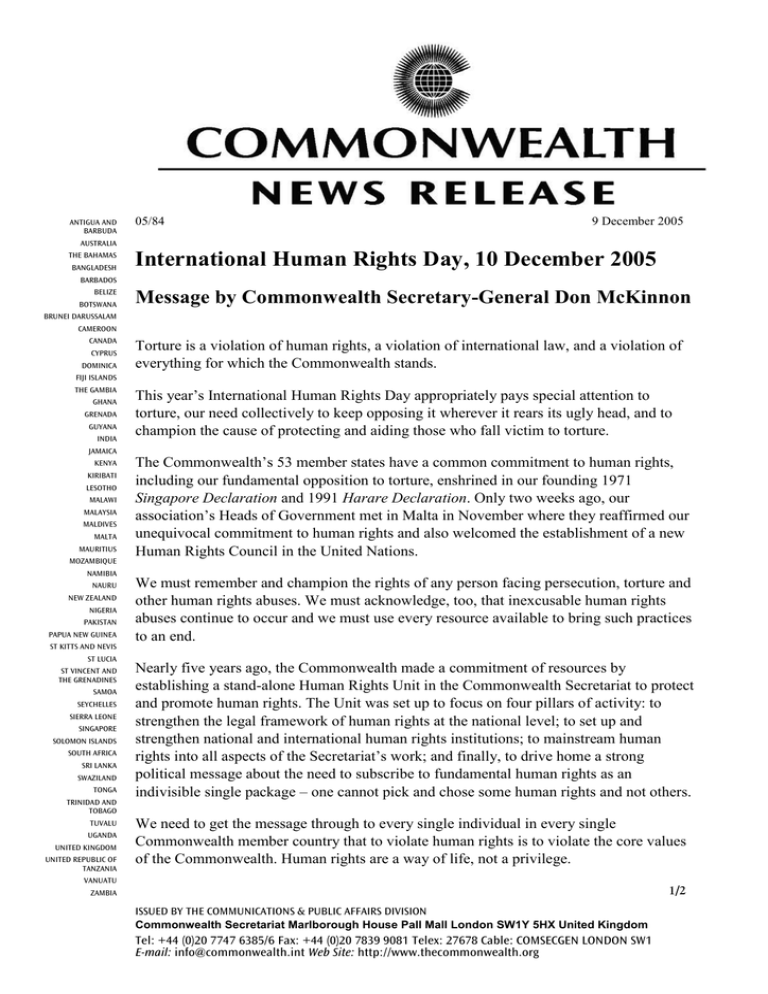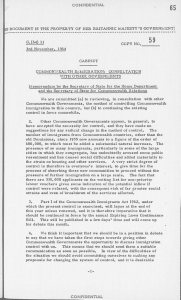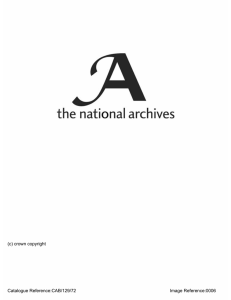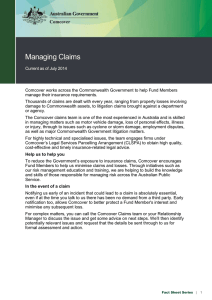International Human Rights Day, 10 December 2005 05/84
advertisement

ANTIGUA AND BARBUDA 05/84 9 December 2005 AUSTRALIA THE BAHAMAS BANGLADESH International Human Rights Day, 10 December 2005 BARBADOS BELIZE BOTSWANA Message by Commonwealth Secretary-General Don McKinnon BRUNEI DARUSSALAM CAMEROON CANADA CYPRUS DOMINICA Torture is a violation of human rights, a violation of international law, and a violation of everything for which the Commonwealth stands. FIJI ISLANDS THE GAMBIA GHANA GRENADA GUYANA INDIA JAMAICA KENYA KIRIBATI LESOTHO MALAWI MALAYSIA MALDIVES MALTA MAURITIUS MOZAMBIQUE This year’s International Human Rights Day appropriately pays special attention to torture, our need collectively to keep opposing it wherever it rears its ugly head, and to champion the cause of protecting and aiding those who fall victim to torture. The Commonwealth’s 53 member states have a common commitment to human rights, including our fundamental opposition to torture, enshrined in our founding 1971 Singapore Declaration and 1991 Harare Declaration. Only two weeks ago, our association’s Heads of Government met in Malta in November where they reaffirmed our unequivocal commitment to human rights and also welcomed the establishment of a new Human Rights Council in the United Nations. NAMIBIA NAURU NEW ZEALAND NIGERIA PAKISTAN PAPUA NEW GUINEA We must remember and champion the rights of any person facing persecution, torture and other human rights abuses. We must acknowledge, too, that inexcusable human rights abuses continue to occur and we must use every resource available to bring such practices to an end. ST KITTS AND NEVIS ST LUCIA ST VINCENT AND THE GRENADINES SAMOA SEYCHELLES SIERRA LEONE SINGAPORE SOLOMON ISLANDS SOUTH AFRICA SRI LANKA SWAZILAND TONGA TRINIDAD AND TOBAGO TUVALU UGANDA UNITED KINGDOM UNITED REPUBLIC OF TANZANIA Nearly five years ago, the Commonwealth made a commitment of resources by establishing a stand-alone Human Rights Unit in the Commonwealth Secretariat to protect and promote human rights. The Unit was set up to focus on four pillars of activity: to strengthen the legal framework of human rights at the national level; to set up and strengthen national and international human rights institutions; to mainstream human rights into all aspects of the Secretariat’s work; and finally, to drive home a strong political message about the need to subscribe to fundamental human rights as an indivisible single package – one cannot pick and chose some human rights and not others. We need to get the message through to every single individual in every single Commonwealth member country that to violate human rights is to violate the core values of the Commonwealth. Human rights are a way of life, not a privilege. VANUATU 1/2 ZAMBIA ISSUED BY THE COMMUNICATIONS & PUBLIC AFFAIRS DIVISION Commonwealth Secretariat Marlborough House Pall Mall London SW1Y 5HX United Kingdom Tel: +44 (0)20 7747 6385/6 Fax: +44 (0)20 7839 9081 Telex: 27678 Cable: COMSECGEN LONDON SW1 E-mail: info@commonwealth.int Web Site: http://www.thecommonwealth.org The Commonwealth Human Rights Training Manual for Police Trainers in Commonwealth West Africa is a fresh contribution to achieving this aim. Recently produced with local police services, the manual provides support to police trainers in West Africa to raise the levels of understanding by police officers of the international legal context in which their work takes place. Encouragingly, there is already interest being shown in the Pacific and elsewhere by other Commonwealth police forces to use the manual too. Most Commonwealth police officers see themselves quite justifiably as servants of the public, as protectors rather than violators of human rights. However, any institution that has a duty to protect the public undoubtedly has power. And with that power comes the responsibility to observe and uphold legal limits beyond which official action would be unlawful, and to be seen to do so. Publications such as the new manual allow everyone to be clear about the boundaries. To attain any of our goals in the area of fundamental human rights, the bar of minimum standards – of what is deemed to be acceptable – must steadily be raised. The prohibition on State torture has crystallised into international law because of consistent denouncement of it by States the world over. The International Covenant on Civil and Political Rights entered into force 30 years ago next year, along with the International Covenant on Economic, Social and Cultural Rights. Most Commonwealth countries have ratified these cornerstones of international human rights law, but there are some that have not. All members should give 21st Century expression to our shared principles by ratifying them. It is possible to see a day where ratifying those two international conventions becomes a human rights yardstick for becoming a full Commonwealth member. If we are truly determined to confine torture and other human rights abuses to our past, then we must be prepared to look our demons in the eye and cast them out. 2





